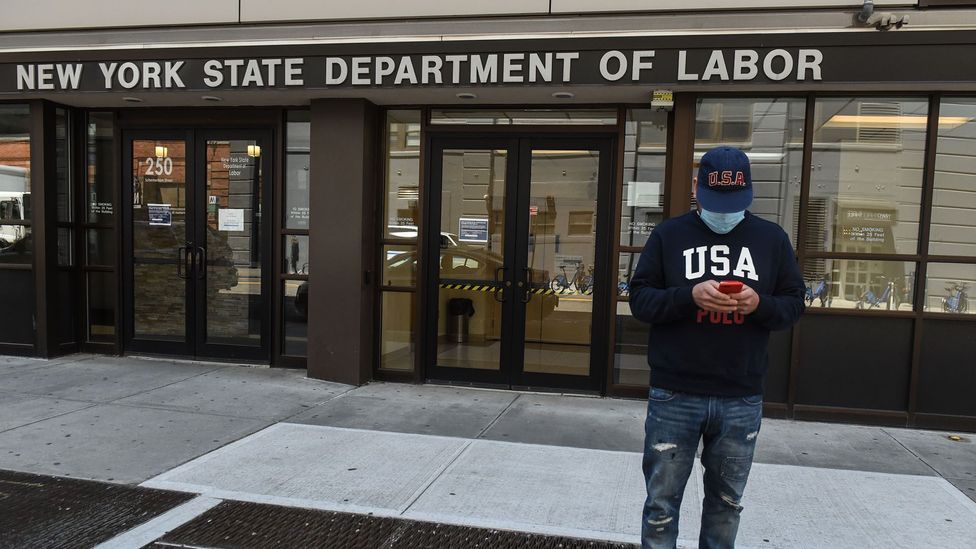IT WAS A SUCCESS

By David Cox BBC 24th June 2020
Amid wide unemployment during Covid-19, basic income schemes have gained fresh relevance. A successful Canadian scheme that's over four decades old could provide a road map for others.
Evelyn Forget was a psychology student in Toronto in 1974 when she first heard about a ground-breaking social experiment that had just begun in the rural Canadian community of Dauphin, Manitoba.
“I found myself in an economics class which I wasn’t looking forward to,” she remembers. “But in the second week, the professor came in, and spoke about this wonderful study which was going to revolutionise the way we delivered social programmes in Canada. To me, it was a fascinating concept, because until then I’d never really realised you could use economics in any kind of positive way.”
The experiment was called ‘Mincome’, and it had been designed by a group of economists who wanted to do something to address rural poverty. Once it was implemented in the area, it had real results: over the four years that the program ended up running in the 1970s, an average family in Dauphin was guaranteed an annual income of 16,000 Canadian dollars ($11,700, £9,400).
With unemployment likely to mount in the wake of Covid-19, the concept of introducing a basic income is once again back in vogue on both sides of the Atlantic.
Why did these economists start Mincome those four decades ago? They wanted to see whether a guaranteed basic income for those below the poverty line could improve quality of life – a grand economic idea that had been around since the Enlightenment, but had barely been tested in practise.
As one of just a handful of real-life basic income trials that has taken place over the past half century, little did they know that more than 40 years later, this experiment would be at the centre of the discussion regarding the merits of introducing basic income on a larger scale.

Unemployment numbers have soared in many countries during the Covid-19 pandemic, causing some to reapproach the topic of universal basic income (Credit: Getty Images)
Back in 1974, Canadian policy makers were inspired by a wave of social reforms, which had been rolled out throughout the 1960s and early 1970s, including the introduction of universal health insurance across Canada in 1972. So, having garnered the support of Canada’s federal and provincial governments, University of Manitoba economist Derek Hum, along with Manitoba civil servants Ron Hikel and Michael Loeb, created a scheme in which Dauphin’s poorest residents could apply to receive monthly cheques to boost their existing income. At the time it was the most ambitious social science experiment ever to take place in Canada, and saw rates of hospitalisations fall, improvements in mental health, and a rise in the number of children completing high school.
“It wasn’t a case of getting money to live and do nothing,” says Sharon Wallace-Storm, who grew up in Dauphin and was 15 when the experiment began. “They set a level for how much a family of three or four needed to get by. You applied showing how much you were making, and if you didn’t meet that threshold they would give you a top up.”
‘100 miles too far from anywhere’
The experiment intrigued Forget, especially because of the sheer remoteness of Dauphin. Located in the middle of a vast plain, a five-hour drive from the capital of Winnipeg, Dauphin comprised little more than farming, and a small factory producing trainers. Even the town’s own inhabitants would jokingly refer to it as being “100 miles too far from anywhere”.
But choosing Dauphin wasn’t random – it was simply a case of pragmatism. The economists needed a town of approximately 10,000 people – any smaller, and they would lack sufficient data to draw conclusions, while any bigger and it would cost too much – which they could drive to and from in a day. They drew a big circle around Winnipeg and happened upon Dauphin.
In total, the scheme ran for more than four years, with the primary goal of investigating whether a basic income reduced the incentive to work, one of the main public concerns at the time regarding such schemes.
At the time it was the most ambitious social science experiment ever to take place in Canada, and saw rates of hospitalisations fall, improvements in mental health, and a rise in the number of children completing high school
However, it was abruptly stopped in 1979, a casualty of the political and economic turmoil of the mid-to late-1970s. A series of oil price shocks had led to rampant inflation and increasing levels of unemployment. This meant that by 1979, far more families in Dauphin were seeking assistance than the experiment had budgeted for, while the scheme’s payouts were rising with the inflation rate.
Soon, both the federal and provincial governments decided that supporting it was no longer viable, and so the experiment was scrapped. The many files of data were packed away in cardboard boxes, stored in a warehouse, and there they languished, unused and forgotten for nearly three decades.
Uncovering the truth
Forget had long wondered what had happened to the social experiment that so captivated her in 1974. Merely hearing about it even changed her own career direction: she switched fields from psychology, andlater became a health economist.
So, in 2008, she finallydecided to find out what had become of it.
“As a health economist, you become aware very quickly that we use the healthcare system to treat the consequences of poverty, and we do it in an inefficient and expensive way,” she says. “We wait until people live horrible lives for many years, get sick as a consequence, and then we go in all guns blazing to make things better.”
Forget discovered that the data had fallen under the jurisdiction of the Winnipeg regional office of Canada’s National Library and Archives. After gaining permission to analyse it, she was confronted with 1,800 dusty boxes packed full of tables, surveys and assessment forms, all of which needed to be digitalised.
After several years of painstaking work, she was finally able to publish the results, many of which were eye-opening. In particular, Forget was struck by the improvements in health outcomes over the four years. There was an 8.5% decline in hospitalisations – primarily because there were fewer alcohol-related accidents and hospitalisations due to mental health issues – and a reduction in visits to family physicians.
Forget believes this was a direct result of the added security in people’s lives provided by the basic income. “I wanted to see whether doing something about poverty has an impact on people’s health and these results are really interesting,” she says. “An 8.5% reduction over four years is pretty dramatic.”

The small city of Dauphin, Manitoba in Canada was the site of a successful universal basic income experiment in the 1970s. Can it be replicated elsewhere? (Credit: Alamy)
Joy Taylor, who was 18 and newly married when the scheme began, remembers that people had much less to worry about financially during the course of the experiment, which improved their wellbeing. Her husband was suddenly able to get a loan to open a local record store, with banks being more willing to lend money to small businesses because of the guaranteed payments.
There was also an increase in the number of adolescents completing high school. Before and after the experiment, Dauphin students – like many in rural towns across Manitoba – were less likely to finish school than those in the city of Winnipeg, with boys often leaving at 16 and getting jobs on farms or in factories. However, over the course of those four years, they were actually more likely to graduate than Winnipeg students. In 1976, 100% of Dauphin students enrolled for their final year of school.
“Very often these people were the first in their family who’d ever finished high school,” says Forget. “When Mincome came along, families decided they could support their sons in school just a little bit longer, and, in some ways, I think that’s the most exciting result because we saw that investment in human capital.”
Other families who were on the programme at the time remember that certain things were suddenly more affordable. For Eric Richardson, the youngest of six children who was aged 10 when the experiment began, the introduction of basic income meant a trip to the dentist for the first time. “Normally, you didn’t get to go until you were old enough to pay for it yourself,” he says. “I remember it very well because I had 10 cavities and our dentist would drill your teeth without freezing.”
For Eric Richardson, the youngest of six children who was aged 10 when the experiment began, the introduction of basic income meant a trip to the dentist for the first time
But when the experiment ended in 1979, the improvements which had been seen in health and education soon returned to how things had been in 1974. Taylor remembers how many of the small businesses that had sprung up over the preceding four years began to vanish. Her husband was forced to close their shop, and the couple soon left Dauphin for good.
“After the programme ended, we moved to Ontario in 1980 because there was nothing to stay for anymore,” she says. “It just wasn’t doing very well.”
And, so, Dauphin faded back into anonymity – until now. Forget’s persistence in bringing the findings of Mincome to light has led both policy makers and academics around the world to revisit this long-forgotten experiment, as they ponder whether such a scheme could ever be viable on a much larger scale.
Can basic income work across a whole country?
Proponents of a nationwide basic income scheme have argued that a system similar to Mincome, in which those earning less than a certain threshold receive top-up payments, are a necessary complement to the existing benefits system in order to reduce poverty. They feel that the stringent requirements attached to welfare programmes means that on their own, they provide insufficient support.
However, critics point to the huge administrative costs associated with providing a population-wide basic income, potentially supporting several million individuals. After all, just 2,128 people in total were involved in the Mincome experiment.
In 2017, Luke Martinelli, an economist at the University of Bath, attempted to model how much such a scheme may cost the UK, with the cheapest estimate coming to £140 billion per year – on top of the existing welfare state costs. Critics have stated that no trial conducted so far has provided any indication of whether governments could afford such a large-scale programme, nor whether citizens would be willing to accept the higher levels of taxation needed to fund it.
One of the things we do know from the Mincome experiment is that basic income does not appear to discourage the recipients from working – one of the major concerns politicians have always held about such schemes. Forget found that employment rates in Dauphin stayed the same throughout the four years of Mincome, while a recent trial in Finland – which provided more than 2,000 unemployment people with a monthly basic income of 560 euros ($630, £596) from 2017 to 2019 – found that this helped many of them to find work which provided greater economic security.
“They recently released the final results, which showed the nature of the jobs that people got once they received a basic income was changing,” says Forget. “So instead of taking on precarious part-time work, they were much more likely to be moving into full-time jobs that would make them more independent. I see that as a great success.”
Critics have stated that no trial conducted so far has provided any indication of whether governments could afford such a large-scale programme, nor whether citizens would be willing to accept the higher levels of taxation needed to fund it
But to understand some of the broader implications of how a basic income scheme may work across a larger population, some experts believe it may be necessary to first try it on a state-wide or regional level, before rolling it out on a nationwide scale can be considered.
This could provide governments with a better idea of what it could cost in practise, as well as analyse critical social factors such as what Greg Mason, an economist at the University of Manitoba, calls the ‘politics of envy’.
“All the experiments so far have only considered whether basic income affects the willingness to work of those receiving the extra payments,” Mason says. “But they haven’t looked at the people who are just above the threshold for receiving basic income. Those people could well become very resentful of anyone who isn’t working, and yet only earn slightly less than them.”
Mason believes that for basic income to work on a larger scale, governments would need to find an eligibility income threshold that is reasonable enough to cover necessities, while not allowing people to live “the good life”. He predicts that such a threshold is likely to lie in the region of CAD$15,000 ($11,000, £8,800) – very similar to the equivalent sum which families in Dauphin received during Mincome.
Although many questions do need to be answered surrounding the affordability of basic income on a larger scale, Forget believes that the impact of the coronavirus pandemic could render it necessary to consider taking radical measures to plug gaps within existing welfare programmes.
“When Covid-19 came along and people started to lose jobs in Canada, we discovered that the suite of social programmes in place was really not up to the task,” she says. “You have this mismatch of inconsistent programmes, and you’ve got people falling through the gaps so they’re not getting the support they need. That’s only going to continue as many of the firms suffering now because of the pandemic are probably finished. With so much employment, I think basic income needs to be considered as it provides a much more coherent solution.”
For the residents of Dauphin who lived through the Mincome project during the 1970s, there are no doubts of its merits. “I’m a huge advocate of basic income to this day,” says Taylor. “Knowing that extra money was coming in made life that bit easier. You no longer needed to be afraid of paying the bills or what you were spending on food. It gave you that piece of mind.”
No comments:
Post a Comment